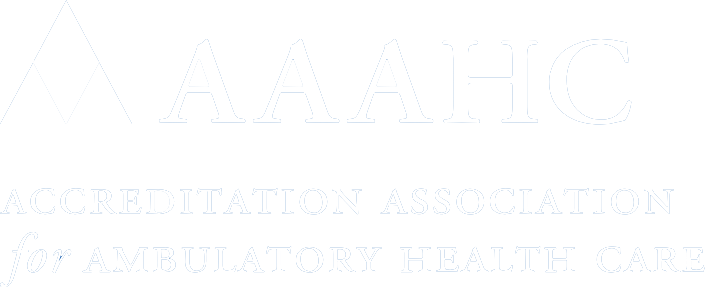Do You Have A Torn Knee Ligament?
Knee injuries are common, especially among high-performance athletes. A sudden stop, twist, or blow to the knee can tear a knee ligament, the most feared of all injuries. ACL and MCL tears, in particular, can destabilize the knee, causing months of pain and recovery. Luckily, some signs point to a ligament injury.

ACL vs MCL
The ACL and MCL differ in both location and purpose. The anterior cruciate ligament or ACL is in the middle of the knee. This ligament connects the femur and tibia and forms an X with the posterior cruciate ligament or PCL. Both the ACL and PCL prevent the knee from going too far forward or backward. The collateral ligaments, on the other hand, are on the sides of the knee. The MCL or medial collateral ligament is on the inner knee, connecting the fibula and femur. The MCL and the LCL prevent excessive sideways movement. Together, these ligaments help with twisting movements while keeping the knee in place.
Signs of an ACL tear
When the ACL tears, the knee can no longer turn without pain. ACL injuries often happen in sports collisions. Most injuries occur in football, soccer, and basketball. The most significant sign of an ACL tear is the popping sound that occurs on contact. The ligament is so strong that the injured person feels when there is a snap or pop. Other signs include swelling, tenderness, and pain in the middle of the knee. Twisting, turning, or extending the knee feels near impossible.
Watch out for these MCL injury symptoms
MCL tears have similar symptoms to ACL tears, with some key exceptions. A blow to the inner knee can cause an MCL tear. Like the ACL, the injured person will feel pain, swelling, and tenderness. Unlike the ACL, there is no popping sound with the MCL. The pain will be specific to the inner knee with some bruising. Furthermore, simple tasks like standing, sitting, and extending the knee can be difficult. For both ACL and MCL injuries, the right medical care is crucial for a quick recovery.
Can you walk with a torn ACL?
After a ligament tear, there will be immediate swelling, tenderness, and discomfort. Applying immediate first aid can help reduce the swelling. A healthcare provider can help with testing the stability of the knee and assessing the extent of the damage. With ACL tears, walking is possible but can be painful. The patient should be able to walk in a straight line but will be unable to make sudden turns or pivot. A knee brace can help stabilize the knee, but with ACL tears, surgery is almost always required.
What about the MCL?
Based on the degree of injury, walking is also possible with an MCL. With a partial tear, walking is possible but not without pain. Walking is also possible with a full-thickness MCL tear. Yet, this injury will need surgical intervention. A knee brace prevents the knee from moving inward, but some limited movement is possible. With both MCL and ACL injuries, walking will only be limited to short distances before undergoing surgery or physical therapy.
Surgery for a brighter future
Both ligaments can benefit from ligament reconstruction surgery. Athletes, in particular, must get surgery if the goal is to perform at a high level again. Luckily, advancements in surgical procedures mean that these repairs are now minimally invasive. Using 2-3 incisions the size of buttonholes, a surgeon can remove the damaged ligament. From there, the surgeon installs a replacement tendon from a donor or other part of the body. Knee ligament repair requires extensive physical therapy, with recovery going as long as 12 months.
Go beyond walking with ligament repair
Full tears of the ACL and MCL are serious and can affect future movement. If the MCL or ACL tears, the result is usually pain, swelling, stiffness, and instability. In most cases, the injured person can still walk with the torn knee ligament. But the movement will be severely limited, not to mention painful. Surgery may be the best route to a pain-free life, with amazing success rates. If someone suspects a damaged ACL or MCL seek immediate medical attention.
Can Lower Back Pain Return After Spinal Surgery? 3 Lifestyle Changes To Get The Most Out Of Fusion
Minnesota Valley Valley Center2024-04-02T14:49:38-05:00April 15th, 2024|
Spinal surgery is an excellent solution for lower back pain, but symptoms can return. With lifestyle changes, patients can get the most out of fusion.
A New Lease On Life: Exploring How Robotic Total Joint Replacement Can Get You Active Again
Minnesota Valley Valley Center2024-03-24T17:38:47-05:00March 29th, 2024|
Robotic total joint replacement uses a robotic arm to replace the joint. This innovative approach allows a quick return to activities.
Restoring Dexterity: How Outpatient Carpal Tunnel Surgery Can Change Your Life
Minnesota Valley Valley Center2024-03-24T17:38:37-05:00March 15th, 2024|
After months of wrist and hand pain, carpal tunnel surgery may be needed. With outpatient options, restored dexterity with less pain and discomfort is possible.
More Articles from MVSC
April 15, 2024
Spinal surgery is an excellent solution for lower back pain, but symptoms can return. With lifestyle changes, patients can get the most out of fusion.
February 29, 2024
Rotator cuff tears can severely limit shoulder mobility. Surgery can relieve pain and improve mobility, allowing patients better reach.
January 15, 2024
Spinal conditions in the lower back may require a procedure called laminectomy. With MIS, patients have higher success rates.
December 21, 2023
Clavicle fractures are often treated non-surgically. The location and degree of damage can indicate whether collarbone surgery is needed.










